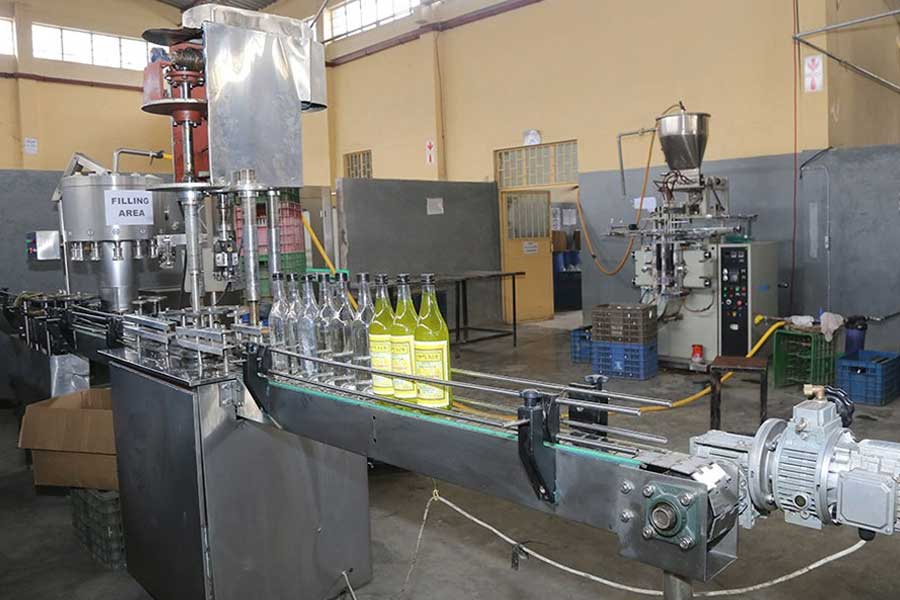
Featured | Dec 21,2019
Dec 14 , 2019
By Etenat Awol
Maternity remains the ultimate emotional attachment of both nature and society. Beyond all good and voracious pleasures of worldly accomplishments, motherhood possesses an exceedingly gratifying means of absolute belongingness.
While many things were changed through time beyond expectation, the overall bond of maternity and children still is thought of as belonging in the woman’s world.
Motherhood can be an exhausting experience though it is followed by relief and a very enjoyable outcome. It has its own responsibility and burden, which involves emotional and physical attention, seeks passion and takes time.
Simon de Beauvoir, in her book "The Second Sex", wrote: “Since the cause of women’s oppression is found in the resolve to perpetuate the family and keep the patrimony intact, if she escapes the family, she escapes this total dependence as well; if society rejects the family by denying private property, woman’s condition improves considerably.”
In this particular sentence she argued that motherhood has been used as an instrument for women’s exploitation by putting the burden of motherhood entirely on the woman. It makes sense, because it shows the exact gap between men and women under a patriarchal social structure, with the hitherto prevailing long tradition for division of roles based on gender. This makes maternity a burden: a comfortable situation for the system to put an extra load on women’s shoulders in the saintly name of maternity.
Since feminism is all about women, the idea of feminism cannot get along without including the need and nature of maternity. In our time we have various sorts of feminism based on different indispensable theoretical assumptions. Each happened to support the idea of motherhood for equality or opposed it, because they believe it is the most significant obstacle in the way of women’s pursuit of independence and equality.
The most radical feminists put the notion of having a child far from consideration under any circumstances. They strongly argue that women would never truly be free of patriarchy until they were freed from the yoke of reproduction by pointing out the biological uneasiness of pregnancy and birth while the task of raising children is a continuous undertaking. Pioneers of radicalism were confronted with the patriarchal belief of motherhood that was the source of women’s oppression, not the actual experience of mothering.
Considering the fact that many issues continue to be raised, it is wise to understand that motherhood is very complicated and should not be seen from only one angle. This complication means it needs to be viewed with appropriate multidimensional angles. As there is an established relationship between feminism and motherhood, it is about time that the issue be raised in the modern context.
The fight with patriarchy should not be stretched to disavow motherhood. Child raising is a shared responsibility in modern families. Most importantly, current concerns regarding the issue of maternity can be addressed through progressive government policies.
Especially in our country where the burden of women as mothers is very intense and difficult, we need to pay special attention toward addressing maternity and women’s careers. Considering this, there is an urgent need to come up with inclusive policy during pregnancy and birth in the workplace that accommodates the needs of women and mothers.
As mentioned the system in Ethiopia brings a great deal of struggle for working mothers, and it is even worse in higher governmental institutions like universities. Imagine how difficult it is for female academicians to be competitive with their male counterparts when women are forced to take months off after childbirth and without considerate workplace nurseries when they return to work. It is undeniable that such working environments put an unfair burden on women. It is hard to compete in the marketplace when she is thinking about her newborn left at home.
In order to ease this tension and empower women, crafting productive family policy during birth, sufficient maternity leave after birth and a progressive pension plan that takes into account the burdens of maternity should be arranged. Moreover, it is about time that society rebalances the burden of motherhood. Childbearing may be a woman’s responsibility, but child-rearing should be a community responsibility.
PUBLISHED ON
Dec 14,2019 [ VOL
20 , NO
1024]


Featured | Dec 21,2019

Sunday with Eden | Dec 16,2023

View From Arada | Apr 06,2024

Agenda | Jun 24,2023

Fortune News | Feb 26,2022

Viewpoints | Nov 16,2019

Editorial | Jul 26,2025

Life Matters | Jun 21,2025

Sunday with Eden | Apr 13, 2025

Sunday with Eden | Oct 25,2025

Photo Gallery | 178851 Views | May 06,2019

Photo Gallery | 169050 Views | Apr 26,2019

Photo Gallery | 159902 Views | Oct 06,2021

My Opinion | 137118 Views | Aug 14,2021
Commentaries | Oct 25,2025

Dec 22 , 2024 . By TIZITA SHEWAFERAW
Charged with transforming colossal state-owned enterprises into modern and competitiv...

Aug 18 , 2024 . By AKSAH ITALO
Although predictable Yonas Zerihun's job in the ride-hailing service is not immune to...

Jul 28 , 2024 . By TIZITA SHEWAFERAW
Unhabitual, perhaps too many, Samuel Gebreyohannes, 38, used to occasionally enjoy a couple of beers at breakfast. However, he recently swit...

Jul 13 , 2024 . By AKSAH ITALO
Investors who rely on tractors, trucks, and field vehicles for commuting, transporting commodities, and f...

Oct 25 , 2025
The regulatory machinery is on overdrive. In only two years, no fewer than 35 new pro...

Oct 18 , 2025
The political establishment, notably the ruling party and its top brass, has become p...

Oct 11 , 2025
Ladislas Farago, a roving Associated Press (AP) correspondent, arrived in Ethiopia in...

Oct 4 , 2025
Eyob Tekalegn (PhD) had been in the Governor's chair for only weeks when, on Septembe...

Oct 25 , 2025 . By YITBAREK GETACHEW
Officials of the Addis Abeba's Education Bureau have embarked on an ambitious experim...

Oct 26 , 2025 . By YITBAREK GETACHEW
The federal government is making a landmark shift in its investment incentive regime...

Oct 29 , 2025 . By NAHOM AYELE
The National Bank of Ethiopia (NBE) is preparing to issue a directive that will funda...

Oct 26 , 2025 . By SURAFEL MULUGETA
A community of booksellers shadowing the Ethiopian National Theatre has been jolted b...